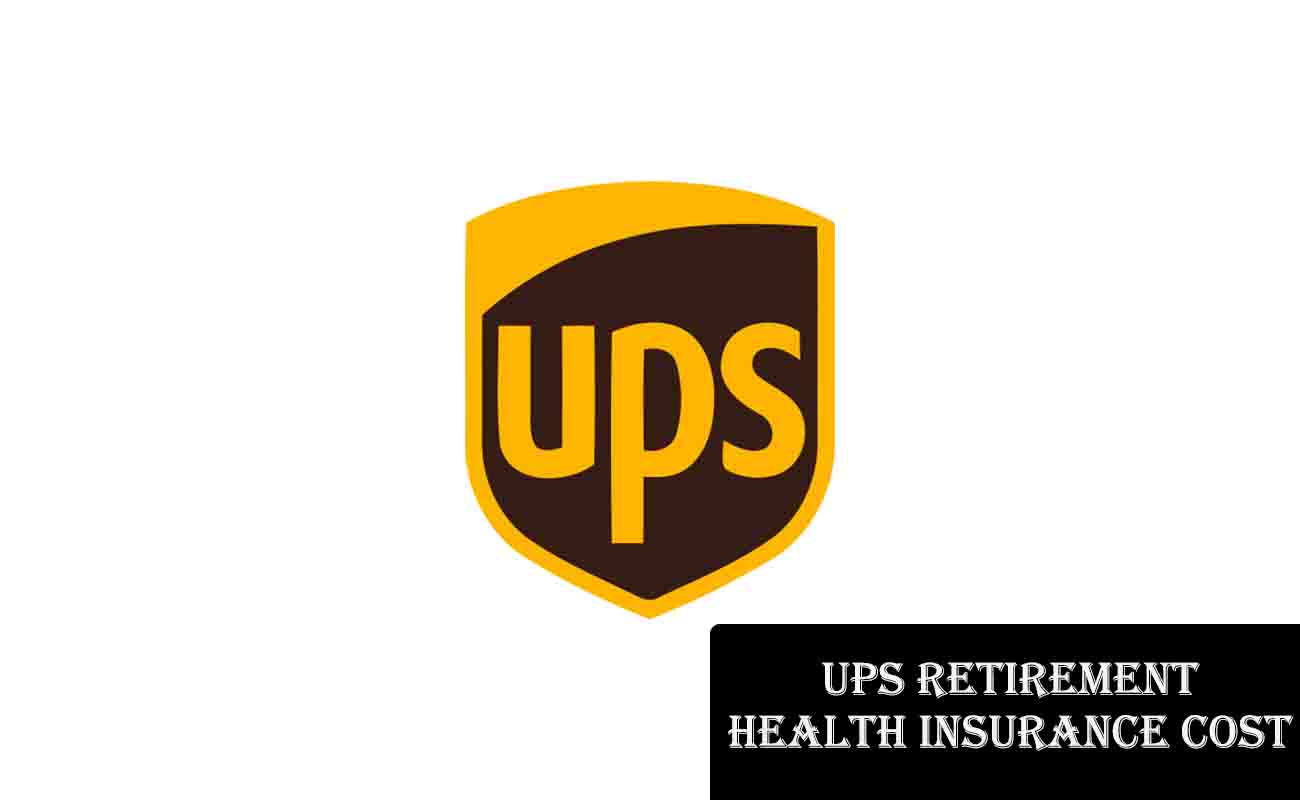We all look forward to retirement, especially after working hard for a firm like UPS for years. However, health insurance is important to consider as you leave employment and enter retirement. I’ve been through it, so I understand how daunting it can be. You might be wondering, “What will my UPS retirement health insurance cost?” or “Will it cover all my needs?” Let’s discuss it in detail.

For many retirees, the expense of healthcare is one of their biggest worries. Planning your retirement budget and making sure you get the coverage you require to depend on knowing how much your UPS retirement health insurance will cost.
CHECK OUT >>> AARP Early Retirement Health Insurance
Understanding UPS Retirement Health Insurance
UPS offers its retirees a range of health insurance plans that are customized to meet their specific needs. These plans are designed to either supplement Medicare once you qualify or to fill the gap between retirement and Medicare eligibility.
These programs’ prices might differ greatly depending on several criteria, including:
- Your years of service.
- The specific plan you choose.
- Whether you’re covering dependents.
- Your eligibility for subsidies as a retiree.
To help you make a good decision and better anticipate what you might pay, I’ll take you through these factors.
Years of Service and Eligibility
Both your eligibility and the cost of retirement health insurance are heavily influenced by the number of years you have worked for UPS. For instance, UPS retirees may be eligible for discounted premiums if they fulfill specific requirements, such as having worked for the company for at least 20 years.
I recall having a conversation with a coworker who had worked for UPS for 25 years before retiring. Compared to someone who retired after 15 years, their premium was significantly lower. It’s critical to realize that UPS rewards employees with longer tenures by calculating these subsidies on a sliding scale.
Pro Tip: To optimize these benefits, think about extending your service if you have a few years left before retiring.
Types of Health Insurance Plans Available
Knowing every option available to you as a UPS retiree is important when selecting a health insurance plan. Whether you want full coverage before becoming eligible for Medicare or supplemental assistance once you do, each plan is made to fit your unique needs. Allow me to explain UPS’s main plan categories and what to anticipate from each.
- Pre-Medicare Plans: Designed for retirees under the age of 65, these plans provide essential health coverage until you become eligible for Medicare.
- Medicare Supplemental Plans: Once you’re Medicare-eligible, UPS often provides supplemental plans that cover out-of-pocket expenses not included in traditional Medicare.
I found that pre-Medicare policies typically had higher premiums than supplemental insurance while I was looking over these possibilities. Nonetheless, they frequently included extensive benefits, like as coverage for vision and dental care.
Examine each plan’s deductibles, co-pays, and coverage levels to determine which best suits your needs and financial situation.
Estimating the Cost
Planning your retirement budget requires knowing how much UPS retirement health insurance might cost. Knowing what to anticipate will help you make well-informed selections, even while the precise costs may differ according to your plan of choice, years of service, and whether you’re covering dependents.
To help you better understand what lies ahead, let’s break these expenses into their parts.
Premiums
Your main outlay of funds is the monthly premium. The monthly premiums for UPS retiree health insurance might vary from $300 to $1,200, contingent on your plan type and availability for subsidies.
For example:
- With few subsidies, a pre-Medicare retiree may pay more than $1,000 per month.
- With a strong subsidy, a retiree who is eligible for Medicare may spend less than $200 per month for additional coverage.
It’s important to remember that adding dependents will raise your premium. The cost of a family plan may be almost double that of an individual plan.
Out-of-Pocket Expenses
Out-of-pocket costs such as co-pays, deductibles, and co-insurance might differ considerably from premiums, which are fixed. Upon reviewing UPS plans, I discovered that while lower premium plans sometimes had greater deductibles, higher premium plans typically had lower out-of-pocket expenses.
Be sure to carefully consider these trade-offs if you are retired and living on a fixed income.
Transitioning to Medicare
The cost of your UPS retirement health insurance will probably go down after you turn 65. UPS supplemental plans can assist in bridging the gaps left by Medicare, which becomes your primary insurer.
This is how it operates:
- Enroll in Medicare Part A and Part B.
- Choose a UPS supplemental plan to cover co-pays, deductibles, and additional services like prescription drugs.
My father’s monthly expenses decreased from $800 to roughly $150 after I helped him switch to Medicare with a UPS supplementary plan. We still had to set aside money for dental care and prescription medication coverage separately, though.
Ways to Manage Your UPS Retirement Health Insurance Cost
It doesn’t have to be that difficult to handle the UPS retirement health insurance premiums. You can lessen your financial load and still obtain the coverage you require with a little preparation and smart approaches.
There are several strategies to keep your health insurance premiums in check throughout retirement, including looking into subsidies, using savings tools, or changing your lifestyle. Here are some helpful suggestions to think about.
1. Take Advantage of Subsidies
Verify that you are getting all of the subsidies you are eligible for if you have worked with UPS for several years. To verify your eligibility, get in touch with UPS benefits.
2. Consider Health Savings Accounts (HSAs)
Contribute to an HSA if you are still employed. You can utilize the pre-tax money you save in these accounts to pay for medical bills when you retire.
The extent to which my HSA assisted me in paying for medical bills in the initial years of my retirement cannot be overstated.
3. Shop Around for Supplemental Plans
Don’t be afraid to compare UPS’s plans with private supplemental insurance, even though they provide competitive possibilities. You may occasionally discover a better offer that fits your particular requirements.
4. Stay Healthy
The key is prevention. Maintaining a healthy lifestyle can help you save thousands of dollars over time by lowering your dependency on medical care.
My Final Thoughts on UPS Retirement Health Insurance Costs
Knowing how much health insurance will cost is as important as managing your funds when it comes to retirement planning. As someone who has experienced this process, I strongly advise you to carefully consider your options.
With the correct strategy, you can discover a plan that suits your budget and guarantees you have the coverage you require for this exciting new chapter in your life, even if UPS retirement health insurance premiums can vary.
Your health is an investment, so keep that in mind. Taking preventive measures now will pay dividends in the long run, regardless of whether you are getting ready to retire in a few years or are already close to quitting the workforce.
Do not hesitate to contact UPS’s benefits team or seek advice from a financial advisor with expertise in retirement planning if you have particular queries regarding your circumstances. Your peace of mind is worth it, after all.
ALSO, READ >>> AARP Early Retirement Health Insurance

